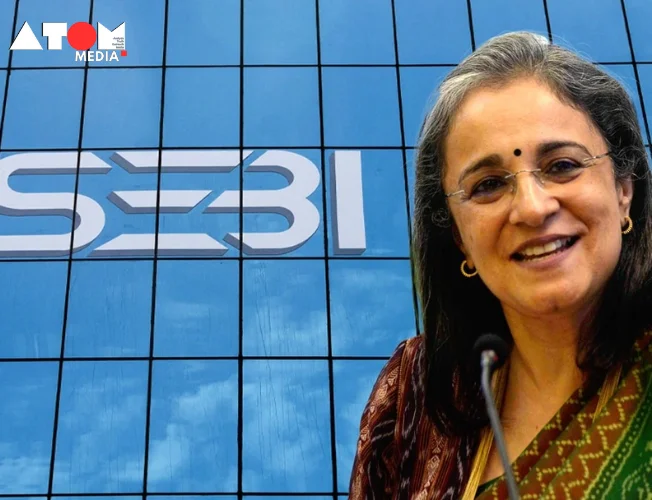Employees of the Securities and Exchange Board of India (SEBI) have expressed grave worries about a developing “toxic work environment” under the direction of Madhabi Puri Buch, the current chairwoman, in a recent letter to the Ministry of Finance. The letter, entitled “Grievances of SEBI Officers – A Call for Respect,” details a work environment characterised by humiliation in public, undue pressure, unattainable goals, and negative effects on the emotional well-being of staff members.
Given that SEBI is a key player in regulating India’s financial markets, this disclosure has generated a lot of talk in the corporate and regulatory worlds. Here, we examine the main complaints brought up by SEBI staff members, illuminating the problems encountered by the labour force.
1. Unrealistic KRA Targets Causing Unbearable Stress
A primary grievance voiced by workers of SEBI concerns the imposition of unrealistic Key Result Area (KRA) targets. It has been alleged that these performance metrics, which are used to evaluate employees, have been exaggerated without accounting for the burden that different departments are already responsible for. The letter claimed that even though several divisions were already having trouble meeting last year’s standards, their KRA targets increased by 20% to 50% from the prior year.
The letter makes clear that SEBI is not a sales-oriented company where it should be standard practice to continuously improve KRAs. Workers contend that their work’s quality suffers as a result of their unwavering emphasis on reaching improbable targets, which has an effect on many people’s lives throughout India. the pressure to meet these objectives.
2. Overwhelming Work Pressure and Extended Hours
The immense work pressure that SEBI staff experience, which has caused many of them to work long hours and on weekends, is another important concern that they have brought up. Employees are finding it challenging to maintain a healthy work-life balance as a result of the rising KRA demands. The letter emphasises how many employees work after hours by bringing paperwork home, which adds to the already stressful situation.
Workers also disclosed that junior staff is frequently left to bear the lion’s share of the workload when senior and middle management fail to make a significant contribution. The organisation is experiencing significant levels of stress as a result of the constant pressure to achieve deadlines, which has produced a toxic environment.
3. Public Humiliation and Unprofessional Behaviour by Management
The letter’s accusation of public humiliation and name-calling by high management is arguably one of its most concerning features. The staff claims that yelling and reprimanding have become commonplace procedures during meetings, and even senior officers are allegedly scared to go for fear of being made fun of in public.
The letter further claims that SEBI’s leadership has embraced a “fear-based” management style in which staff members are frequently blackmailed into complying. Employees feel devalued and demoralised as a result of this fear-based atmosphere, which has been exacerbated by the unprofessional language and actions. The employees want a more courteous and encouraging work atmosphere, thus they are demanding an end to these behaviours.
4. Swing Barriers: A Symbol of Distrust
The recent construction of swing barriers at SEBI offices to track intraday attendance is another source of concern. Workers contend that this approach treats them as though they lack responsibility and self-motivation, reflecting a lack of trust on the part of management.
In order to promote a pleasant work culture, the letter notes that many contemporary organisations are moving away from strict attendance systems like biometric verification. On the other hand, SEBI’s administration seems to be mired in an antiquated worldview in which it is customary to watch personnel on a minute-by-minute basis. Tensions between the labour and leadership have increased as a result of this interference with workers’ daily activities.
5. Mental Health Crisis: The Hidden Toll
The mental health of SEBI staff has suffered greatly as a result of unreasonable KRAs, excessive work pressure, and unprofessional attitude. The letter discloses that the mental health counsellor for the organisation, who used to have a small number of sessions, is now overbooked. In response to this escalating problem, SEBI’s HR department has been forced to expand unlimited mental health counselling for staff members and increase the number of counselling days.
This mental health crisis highlights how detrimental the toxic workplace culture is to workers’ wellbeing. The letter is a sobering reminder that working in a toxic atmosphere is bad for employees’ emotional health in addition to their productivity.
Closing Remarks: A Change Request
The complaints raised by SEBI staff members give rise to alarming concerns about an increasingly hostile and unsustainable work environment. The complaints voiced, which range from unrealistic targets to public humiliation to mental health problems, point to a more serious issue inside the company. The leadership of SEBI needs to take immediate action to address these concerns and foster a more encouraging, polite, and supportive work environment if it is to continue playing a critical role in efficiently regulating India’s capital markets.
The management of SEBI is under scrutiny due to the charges in the letter, and the way the organisation handles these issues will probably have a long-term effect on employee morale and the organization’s reputation. Employees are hoping that for the time being, their opinions will be taken seriously.
Read more: Marketing News, Advertising News, PR and Finance News, Digital News





